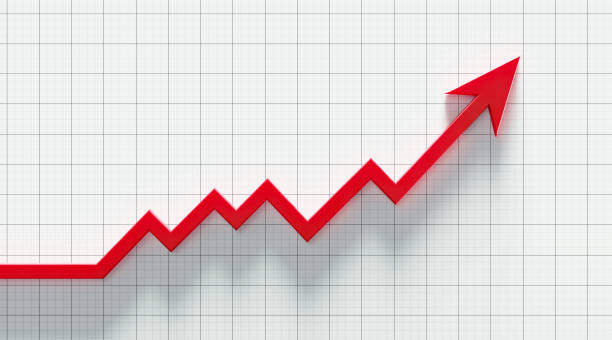Spoiler and article
tl;dr - Grocery prices.
Emphasis mine. And I created shorter paragraphs.
A simple explanation for economic discontent
The economy is hot, but the people are bothered. Americans think the country is in dreadful economic shape despite strong wage growth, low unemployment, and steadily declining inflation. We know this from survey after survey. What we don't really know is how people formed those judgments. To find out, The Atlantic commissioned a new poll.
When the results came in, one finding jumped off the screen: Americans are really, really unhappy about grocery prices.
Working with Leger, a North American polling firm, we asked 1,005 Americans how they felt about the economy. As with other recent polls, this one painted a gloomy picture. Only 20 percent of people said that the economy has gotten better over the past year, compared with the 44 percent who said it has gotten worse. There was a big partisan split, but even among self-identified Democrats, only 33 percent said the economy has improved.
Then we asked them to choose, from a long list, what factors they consider when deciding how the national economy is doing. The runaway winner was "The price of groceries for your home": Twenty-nine percent of people picked it as their top choice, and 60 percent of people selected grocery prices among their top three. Other than "inflation" itself, nothing else came close—not gas, not housing, not interest rates, not the cost of major purchases.
And when we asked what people had in mind when they reported that their personal finances were getting worse, 81 percent chose groceries.
Americans' economic attitudes used to track official statistics, including the inflation rate, pretty closely. That changed in 2020. When the pandemic hit, both the indicators and sentiment plummeted. But then, even as the economy recovered, sentiment remained low. Something broke the relationship between metrics and perception during the pandemic, and housing struck me as the likely culprit.
Home prices, which are not included in the consumer price index, have gone absolutely bananas since 2020, rising far more than overall inflation in that time period. But although the cost of housing may dominate the psyche of people like me—Millennial professionals who rent apartments in super-expensive cities such as Washington, D.C., and wonder whether we can ever afford to buy a house—nearly two-thirds of American households already own their homes, and a spike in prices makes them wealthier.
"For a large share of households, the increased cost of housing prices is an increase in equity in their homes," Betsey Stevenson, an economist at the University of Michigan, told me. "They're not really complaining that the value of their house has gone up." Housing costs are a real pain, but only for some people. The poll cast doubt on a few other popular hypotheses.
On the left, one argument posits that Americans are unhappy because they miss the generous government welfare payments enacted during the pandemic, such as the stimulus checks and the expanded child tax credit. But only 17 percent of our poll respondents said their finances were better during the pandemic. (Fifty-five percent said they were doing better before the pandemic, and 28 percent said they're doing better now.)
People with children at home were generally more positive on the economy than people without kids. That isn't what you'd expect if Americans were fuming over the expiration of the expanded child tax credit. What about the contagious power of negative vibes on social media? This is very hard to test, because people might not be good judges of what shapes their worldview.
But, for what it's worth, we asked where people get their news on the economy, and those who chose Facebook, Instagram, or TikTok expressed more positive views than people who didn't. So, too, did those who say they read national and financial newspapers. The most negative sentiment was generally among older people, not Gen Z TikTokers, which is consistent with other surveys. No single poll is definitive, and you can get answers only to questions you think to ask.
We didn't ask about restaurant prices, for example, or the cost of child care. What's clear is that the biggest cause of America's current economic discontent is the fact that prices are higher than they were before the pandemic. And groceries are, at the very least, one of the things that people are most upset about. Grocery prices increased by 11.8 percent in 2022, far ahead of the overall rate of inflation, which was 6.5 percent.
And unlike with housing, few ordinary Americans benefit from higher grocery prices. Everyone buys groceries, but unless your last name is Kroger or Walton, you probably don't sell them. Knowing that grocery prices drive negativity doesn't, on its face, solve the puzzle of why sentiment has diverged from the economic indicators. Most Americans are making more money, even adjusting for inflation, than they were before the pandemic.
If they were coldly rational, they would recognize that their income more than offsets higher grocery prices—they're spending more, but they still have more left over. Or maybe it isn't much of a puzzle at all. We haven't seen inflation like this since the 1980s; food prices in particular haven't risen so fast since the late '70s.
The models, in other words, have been trained on four decades of low inflation. Asking them to accurately predict what happens when prices finally, suddenly jump doesn't make a lot of sense. "Collectively, there's still this coming to grips with the idea that we're never going back to 2019," Joanne Hsu, the director of consumer surveys at the University of Michigan, told me.
"We're in a new normal now, and we're still adjusting to what that new normal feels like." In this unfamiliar post-inflationary territory, people seem to care more about how much things cost than about how much money they have, even if economists insist that those things are symmetrically important. I should confess that I'm among the many Americans who experience prices as an atmospheric economic condition and income as something I earn.
Early in the pandemic, I got in the habit of making an egg-and-cheese sandwich for breakfast pretty much every day. I recall a six-pack of Thomas English muffins costing about $3.50 at the time. Today, one costs $5.59 at my nearest Wegman's and $5.29 at the nearest Safeway and Harris Teeter.
An economist would probably say I shouldn't worry about it. After all, since the start of the pandemic, I have changed jobs twice, and my income has risen more than enough to easily cover the extra $2 a week on English muffins. Still, I can't bring myself to buy them. My higher income feels like something I accomplished through hard work and patience, but the higher price of English muffins just feels wrong.
I settle for cheaper, inferior brands while waiting in vain for Thomas to go back under $5. (Or I grab them when I'm at Target, where for some reason they're still only $3.49.) Unlike most poll respondents, I don't conclude from this that the economy is bad. On the very specific dimension of egg sandwiches, however, I suppose I do feel worse off. But perhaps not for long.
Grocery prices seem to have finally stopped rising faster than the overall rate of inflation. In fact, according to the most recent government data, they have basically flattened out, increasing by only 0.1 percent in October. The bad news is that, once prices hit a certain level, they tend to stay there. According to Hsu, consumer sentiment has made up about half the ground it lost from the eve of the pandemic to its nadir in June 2022, when inflation was at its peak.
How quickly we close the rest of the gap may hinge on how long it takes Americans to stop pining for 2019 prices that are never coming back. Personally, I still can't wrap my head around paying $5.29 for six English muffins. Ask me again in six months.
My portfolio of property investment is more valuable than ever and you’re complaining about the price of muffins??
Home prices, which are not included in the consumer price index, have gone absolutely bananas since 2020, rising far more than overall inflation in that time period. But although the cost of housing may dominate the psyche of people like me—Millennial professionals who rent apartments in super-expensive cities such as Washington, D.C., and wonder whether we can ever afford to buy a house—nearly two-thirds of American households already own their homes, and a spike in prices makes them wealthier.
"For a large share of households, the increased cost of housing prices is an increase in equity in their homes," Betsey Stevenson, an economist at the University of Michigan, told me. "They're not really complaining that the value of their house has gone up." Housing costs are a real pain, but only for some people. The poll cast doubt on a few other popular hypotheses.
They actually made that point, beat for beat. "Sure, your landlord is taking more of your hard earned cash, but you're a have-not so you don't matter."
nearly two-thirds of American households already own their homes, and a spike in prices makes them wealthier.
I always see this stat and I fully don’t believe it. It’s either based on a stat so different from what anyone would reasonably consider home ownership as to be false or the number is just a straight up fabrication.
Who the fuck are the two thirds of Americans who own their homes? I certainly don’t know them. If I was estimating based on people I know, I would say around 10% of people own their home.
It’s not hard to see how it’s fabricated either. “Households” is already a real iffy number to use for this. Let’s say we have a town of two homes, one is owned by a couple, and their two adult children live with them, the other is rented by 4 roommates. In this town, 50% of households own their home, isn’t that amazing! Even though the actual home ownership rate is 1/7, or 14%.
Also rising home prices actually don’t help home owners unless they sell. If you want to say, continue living in your house, rising house prices actually suck really bad because it means your property taxes go up.
Yeah, for a lot of "homeowners" with mortgages, increased housing costs plus absurd interest rates just mean partial insulation from cost increases (as you say taxes go up) and being trapped.
Even a partial insulation from the ridiculous prices of homes these days is a godsend in this economy so people in homes know they can't afford to switch to renting, but at the same time selling a house and buying a new one means a new mortgage at the new rates, so they can't afford to move to a new house either. People are effectively trapped if they don't want to be thrown into the rental "market" and be preyed upon by vampiric landlords who want to raise the rent every other month.
Better than already being a victim of a landleech, but definitely not positive.
And even taking the % at face value this means up to 100 MILLION people don't own where they live.
 : "But doncha feel fancy with that expensive house, Mr. moneybags!? If you can live it up in that million dollar shack in Nebraska, you can totally afford food that's more valuable than ever! Nice try, but I cant just LeAvE mOnEy On ThE tAbLe and NOT raise prices!"
: "But doncha feel fancy with that expensive house, Mr. moneybags!? If you can live it up in that million dollar shack in Nebraska, you can totally afford food that's more valuable than ever! Nice try, but I cant just LeAvE mOnEy On ThE tAbLe and NOT raise prices!"
"This is the new normal, hemorrhaging your bank account over groceries, deal with it, costs aren't coming down"?
Oh, the 1% is aching for their heads to start rolling, aren't they?
Fuck the petty-bourgeoisie for calling homeless people "bums" when a landlord or a grocery store or homeowners can arbitrarily decide that everything should be more expensive, and they're not seen as moochers. How many times has a landlord justified raised rent "because I can"? A lot.
I know of a certain man with a gorgeous mustache who knew exactly what to do when kulaks hoarded crops in order to make them more valuable.
Or the ever popular "Market rate"
We're raising your rent because the average rent went up because we all raised your rent
Landlords decide amongst themselves they want a raise. No one bats an eye.
Politicians decide amongst themselves that they want a raise, with your tax money....and no one bats an eye.
Workers in a labor union decide they want a raise....and everyone loses their minds about how that's stealing.
 : "You know what I've noticed? Nobody panics when things go "according to plan." Even if the plan is horrifying! If, tomorrow, I tell the press that, like, a minority will be the victim of a hate crime, or a village of brown people will be blown up, nobody panics, because it's all "part of the plan". But when I say that one little old billionaire will have to pay taxes like everyone else, well then everyone loses their minds. Introduce a little anarchy. Upset the established order, and everything becomes chaos. I'm an agent of chaos. Oh, and you know the thing about chaos? It's fair!”
: "You know what I've noticed? Nobody panics when things go "according to plan." Even if the plan is horrifying! If, tomorrow, I tell the press that, like, a minority will be the victim of a hate crime, or a village of brown people will be blown up, nobody panics, because it's all "part of the plan". But when I say that one little old billionaire will have to pay taxes like everyone else, well then everyone loses their minds. Introduce a little anarchy. Upset the established order, and everything becomes chaos. I'm an agent of chaos. Oh, and you know the thing about chaos? It's fair!”It genuinely pisses me off how the chuds co-opted the Joker. Those lines absolutely fit the times we're living in, but I always hesitate to even think them anymore because of the sheer STM/"literally me"(derogatory) energy the character gives off.
They really, really really want americans to get over this whole 'feeling' poor thing. And somehow, this article didn't offer pat advice about finances, just straight told the reader they werent being rational. I feel like... they aren't even really trying to do proper propaganda here, and i cannot abide lazy workers!
They’re afraid that Trump and the GOP are going to start getting more poor peoples’ votes. They want those votes, but they don’t want to actually do anything for workers or change their self-image of being the party of the smart labor aristocrats (they call the shots, but the workers still vote for them). Telling workers “you’re not poor it’s all in your head” is all they can offer.
The rise of Trump is a symptom of backlash against the capitalist system that keeps them oppressed. Trump or another of his type will continue to win, and eventually we'll sink into fascism. The USA's institutes of power long ago decided they'd rather squish anything remotely left, even milquetoast labor unions, to the point that all these people have left is to vote for Trump as a vote against the status quo. I don't begrudge them for it, desperate people doing desperate things, we're in for a hell of a ride over the next 20-30 years, things are going to keep spiraling downwards while the empire burns.
Yea they're very close to unironically publishing the article "don't believe your lying eyes"
On the left, one argument posits that Americans are unhappy because they miss the generous government welfare payments enacted during the pandemic, such as the stimulus checks and the expanded child tax credit
generous
That’s about where I stopped
look at this graph idiot. what is it that you don't understand?
Show
Of course there's more behind it, but they're not wrong. Groceries are something people tend to buy on repeat, so they notice when the prices go up.
We've been lied to for decades about inflation (much higher, official numbers are gamed through substitutions), and after covid, the lying was blatant, many items went out 50-100% in less than 2 years and no signs of ever coming down.
I recall in the early 90s, rice was 10 cents a lb, wild caught alaskan pollock 2 dollars a lb (frozen), sirlion steak 2,99 a lb, etc. eggs were 35 cents a dozen, a gallon of milk was 99 cents, turkey was free if you bought 50 dollars in groceries.
All traditionally cheap staple foods are no longer cheap, rice, dried beans, eggs, milk, flour, etc. Used to be you'd be fine if you shopped smart and didn't have a lot of money, those days are long gone, and studies show it's mostly greedflation, not rising costs of production.
If they were coldly rational, they would recognize that their income more than offsets higher grocery prices
The concept of “average” has been a blight on humanity.
I my econ classes in undergrad, never once did we get into a discussion about how pointless a stat like GDP per capita is - how one single number can’t possibly tell you about the distribution of resources across a population. Or how, if GDP goes up 4%, we never discuss how that growth is split.
This person is just saying “well look, on averrge wages have kept up with a very specific measure of inflation, ignoring a) how meaningless an aggregated stat like a single number for wages or wage growth is, and b) that the “official” measure of inflation may not be what actual people experience.
Look at how they calculate "average spending per student" to defund education. They calculate total school spending by including things like major infrastructure fixes. Most of the time these are things like removing old lead paint, asbestos, mold, crumbling unsafe roofs, adding ac units so kids dont die of heat stroke. Very basic updates that are largely due to poor planning and crumbling designs. When repairs are factored in, it inflates per student spending well above 10-12k per student when most of that money never helped a single student learn. And even the godamn liberals in my area eat this shit up and lament about how schools have gotten worse because "non english speakers" or free lunches are taking up the resources. People are so easily controlled by these sorts of "averages" and its hurting all of our children in the USA.
I like looking at the median quintiles for income and wealth, inflation adjusted, the bottom 80% has barely gone up compared to the top 20% over the decades.
https://www.advisorperspectives.com/dshort/updates/2023/09/13/u-s-household-incomes-a-50-year-perspective
I don't understand why people aren't more enthusiastic about rents, debts, and real estate prices rising
This is less stupidly wrong than the usual drivel I see posted as for why Americans are unhappy with their economic outlook. It still fails to ask the very basic questions needed for decent analysis, but at the least this seeks an explanation that isn't just "TikTok is making people miserable, it must be the fault of the CCP"
 : "It is no concern of mine whether your family has....what was it again?"
: "It is no concern of mine whether your family has....what was it again?" : "Umm....food?"
: "Umm....food?" : "Ha! You really should have thought of that before you became PEASANTS!"
: "Ha! You really should have thought of that before you became PEASANTS!"Quite literally, the capitalists are doing a Holodomor of their own, but it's okay because it's a capitalist Holodomor.
Not so fun fact, according to Norman Finkelstein in an interview he did a week or two ago, the head editor at the Atlantic is an ex IDF fascist
Not only that, his job was overseeing the torture facilities in their prisons
You know, where they regularly abuse children
Doesn't that put all of their bullshit in context?
an interview he did a week or two ago
Heh - I listened to that one too. It's so weird to me how the MSM looks at people like Norm as insane far left wackos when in reality they're honest, fair dealing intellectuals who publish
bookmarksbooks filled with footnotes. If their POVs seem "extreme" it's because American conventional wisdom and the Overton window is created and maintained by people so very wrong and so very ill informed and ill-read.---
Edit
I don't know how my brain turned "books" into "bookmarks" but it did.
The problem with all this polling is that it never seems to function off of a baseline, so basically all interpretations are wishcasting.
people like me—Millennial professionals who rent apartments in super-expensive cities such as Washington, D.C.
The tl;dr for you. Better reason than I expected solely because I expected the reason to be like "people have begun to expect too much from overworked CEOs"













